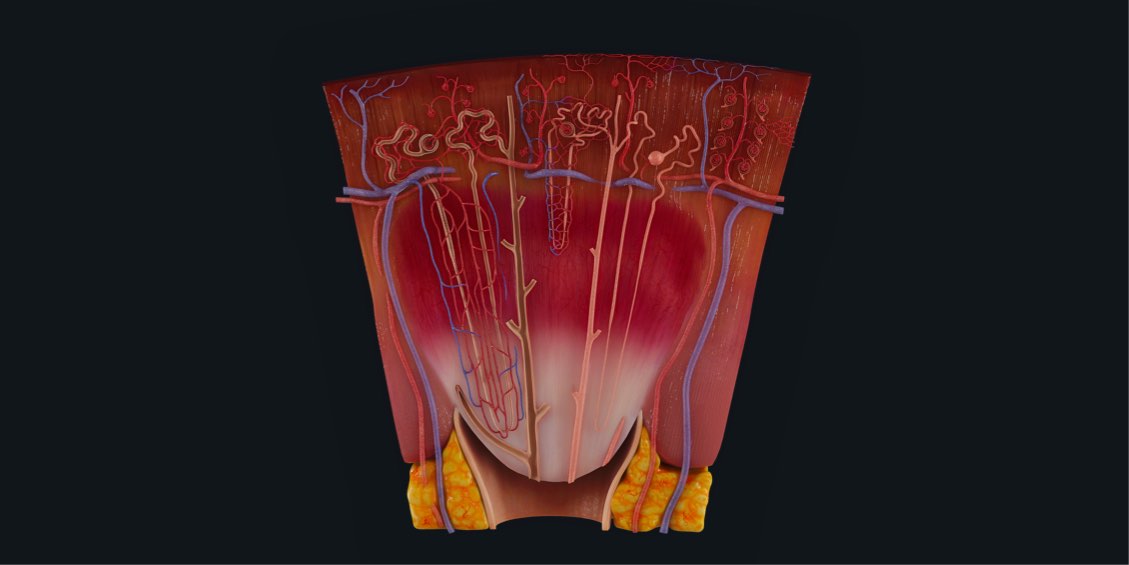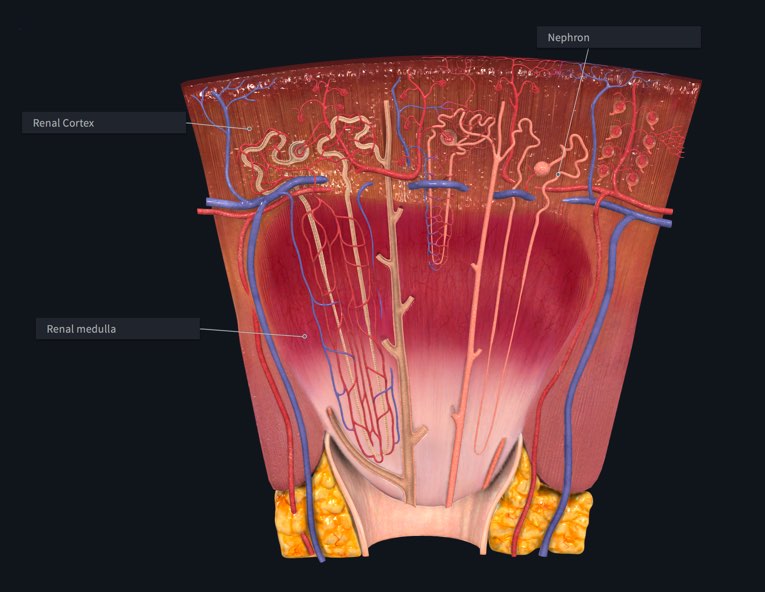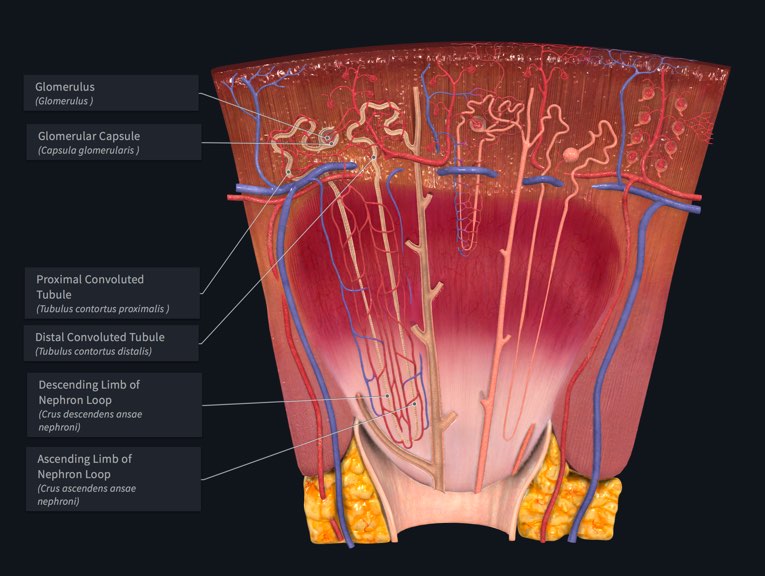
The kidneys are amongst the body’s most important organs. The Ancient Egyptians recognized their importance, leaving only the brain and kidneys in position before embalming the body, inferring that they held a higher value. ?
A single kidney contains 7-9 renal lobes, each of which include a renal pyramid and renal cortex. Within a renal lobe, there are a number of intrarenal blood vessels. These are responsible for the transport of blood around the kidneys, and in particular the delivery of blood to the functional units of the kidneys — the nephrons. ?

There are approximately 1 million nephrons in each human kidney, all actively filtering blood and generating urine. A nephron consists of a renal corpuscle attached to long convoluted renal tubules.
The renal corpuscle contains the glomerulus and the glomerular capsule. Here, water and low-molecular weight substances are filtered during a process known as glomerular filtration. This is the first step of urine production.
The tubules within a nephron include; the proximal convoluted tubule, the loop of henle and the distal convoluted tubule. The second and third steps of urine production (tubular reabsorption and secretion) occur within these tubules.
The tubules eventually drain into collecting ducts where the urine becomes concentrated. The fluid is then passed out of the kidney lobe via the papillary ducts and eventually excreted from the body through the urethra.

The kidneys are impressive organs, filtering approximately a half-cup of blood every minute. Someone who’s lost 30-40% of their kidney function may not even notice. However, a loss of 85-90% can be fatal. Dialysis (or renal replacement therapy) is a treatment option which removes waste and excess fluid when the function of the kidneys declines dramatically.
The Kidney Lobe is one of 15 microanatomy models available in Complete Anatomy 2020. Unlock a whole new world of Anatomy beyond the visible with a FREE 3-day trial.